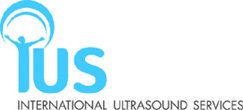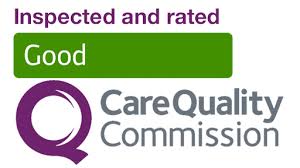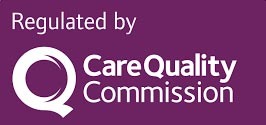There have been multiple reports through time in the media about the failings of private ultrasound providers resulting in misdiagnosis or totally missing an abnormality.
The latest investigation came from BBC and uncovered that the practice of some baby scan clinic is very poor.
Although some parts of the article were exaggerated and result in misinformation, it is always a good idea to do your research and find a reputable clinic to have your private ultrasound scan and pregnancy scan.
What is an ultrasound?
An ultrasound scan is a way of looking at your baby in the womb. The baby scans can check the date your baby is due, tell whether you're having more than one baby and pick up on some possible problems.
All pregnant women are offered ultrasound scans at 8 to 14 weeks and a second at 18 to 21 weeks, as part of their routine NHS antenatal care. These scans are the safest way to monitor your baby's health and development. They also check the health and position of your placenta.
You may be offered more scans if your pregnancy is considered high risk
Are private baby scans safe?
There are more than 200 private baby scanning studios in the UK that offer a variety of services. Some can diagnose medical problems, while others provide souvenir images or videos of the ultrasound.
Many women have found private scans to be a positive experience. However, the issue raised by BBC investigation is that some of these studios sell scans offering "reassurance" when in reality they have no real medical benefit. The investigation has also found evidence of women not being told about serious conditions and abnormalities that have been detected.
BBC News looked at the practices of many private companies and also uncovered concerns about how the industry operates more widely including:
- Failure to diagnose an ectopic pregnancy and multiple spina bifida cases
- Women undergoing private baby scans more than a dozen times during pregnancies not regarded as high risk. The NHS provides two scans unless there is a clinical need for more
- A studio that has not been inspected by the Care Quality Commission (CQC) in England four years after opening
- Companies offering non-essential '4D' scans during lockdown which visualise the foetus but have no medical benefit to women
- Use of doppler function to listen to heartbeats of foetuses under 12 weeks during the early pregnancy scan despite NICE guidance recommending against routine use in low-risk pregnancies
In response, the Care Quality Commission, where all ultrasound clinics need to register, says there is good quality care in the industry, but it has a "growing concern".
What if I have symptoms I am concerned about?
The BBC investigation found that some women who were bleeding and in pain were accepted for scans, rather than being recommended to contact the NHS.
This is of no surprise considering NHS early pregnancy care can be shocking, and it's no wonder that women look to private providers for reassurance, especially if they have a history of miscarriages.
What should you look for when choosing a private scan clinic?
Check if the service is registered with the CQC
Ultrasound scanning services must register with the CQC if they offer diagnostic procedures that use ultrasound to examine the body. This is called 'sonography' and It includes baby scans.
Look for the service registration by searching on the CQC website.
If the service is not registered with the CQC they may be practising illegally, never mind that their insurance may not cover them or you if anything goes wrong.
Types of ultrasound scanning service
Independent baby scanning services usually offer diagnostic pregnancy scans or souvenir scans.
It is important when it comes to private scans that you and your partner fully understand what type of scan the sonographer is doing. Whilst some private scanning companies can offer a full diagnostic check to make sure the pregnancy is progressing normally, others aren't able to provide the same service and won't pick up on problems with the woman or their baby.
It could cause immense problems if people believe the scan will check for any potential complications when it's purely to get a good photograph. Private companies have a duty of care to ensure their customers know what type of scan they are paying for.
Diagnostic scans
A diagnostic scan uses ultrasound to check the health of you and your baby. It's important to have diagnostic scans, so you know your pregnancy is progressing normally.
Souvenir scans
A souvenir scan uses ultrasound to record sound, pictures or videos of your unborn baby to keep as a memento.
Souvenir scans are not for diagnosing problems with you or your baby.
A report published by the Health Protection Agency found no definite evidence souvenir scans harm your baby. But it's important to understand there may be risks we do not know about yet.
A souvenir scan is not a replacement for the routine diagnostic scans you have through the NHS or your independent healthcare provider. These are also known as 'screening scans'.
You should still have routine scans during pregnancy at:
- 8 to 14 weeks of your pregnancy
- 18 to 21 weeks
Your doctor, nurse, midwife or another healthcare professional may also recommend scans at other times.
Who will perform my scan?
Before you decide, you can ask the service who will carry out the scan and how qualified they are.
Anyone trained using ultrasound equipment to perform the scan can describe themselves as a sonographer. But it's important to understand it's not the same as it is carried out by a healthcare professional like a radiographer, nurse, midwife or doctor.
What training the sonographer had?
If your scan is being performed by a sonographer, you can ask what training they've had.
CASE accredited training
The Consortium for the Accreditation of Sonographic Education (CASE) checks whether training courses for sonographers meet certain standards.
Not all training is accredited by CASE and sonographers do not have to go on CASE accredited courses. But if someone has completed a CASE accredited course, this shows their training has at least met some basic standards.
Register of sonographers
The Society of Radiographers keeps a register of sonographers.
The register is voluntary and not all sonographers choose to join it. For example, some might already be registered as a radiographer, nurse, midwife or doctor. So if the person carrying out your scan is not on the register, it does not mean you need to worry.
If someone does join the register, they have to give certain details including their qualifications. But it's important to understand the register is not a form of accreditation. It does not guarantee the sonographer is competent.
Read more about the medical sonographers.
Do your Research
Visit the website of the private ultrasound clinic. You should be able to find all the information you need on their website, and you should be concerned if the website information is suboptimal.
At International Ultrasound Services we provide a large range of ultrasound examinations including private ultrasound scans in London and private pregnancy scans.
Our sonographers are all very experienced working for the NHS, and they are registered and audited by the HCPC.
We are CQC registered and inspected.
We follow the guidelines of NICE, BMUS, RCOG and SoR.
References:
Medically Reviewed by Tareq Ismail Pg(Dip), BSc (Hons)








